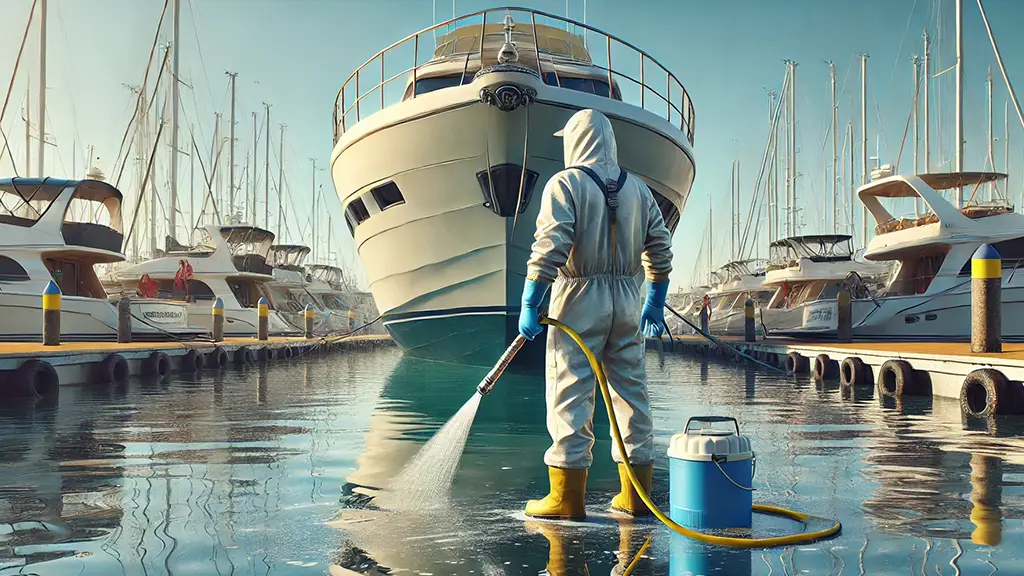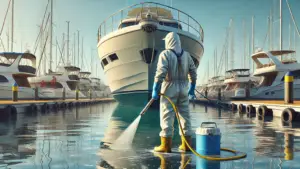Introduction
Marine vehicles, whether they are luxury yachts, fishing boats, or commercial ships, require meticulous maintenance to ensure their longevity and optimal performance. The harsh marine environment can take a toll on these vehicles, making regular upkeep and preventive measures crucial. This comprehensive guide provides essential maintenance tips that will help you extend the life of your marine vehicles, ensuring they remain reliable and efficient for years to come.
The Importance of Regular Marine Vehicle Maintenance
Regular maintenance of marine vehicles is vital for several reasons. It helps in preventing unexpected breakdowns, reducing repair costs, enhancing safety, and ensuring compliance with maritime regulations. Moreover, well-maintained vessels perform better, consume less fuel, and have a higher resale value.
Engine Maintenance Tips
Regular Oil Changes
Changing the engine oil at recommended intervals is crucial for the health of your marine vehicle’s engine. Fresh oil lubricates the engine components, reduces friction, and prevents overheating.
Cooling System Checks
Ensure that the cooling system is functioning correctly. Check coolant levels regularly and inspect hoses for leaks or wear. Overheating can cause severe engine damage.
Fuel System Inspection
Inspect the fuel system for leaks, clogs, or damage. Replace fuel filters regularly to prevent contaminants from reaching the engine and causing damage.
Hull and Exterior Maintenance
Regular Cleaning
Saltwater and marine growth can cause corrosion and damage to the hull. Regular cleaning with fresh water helps remove salt deposits and marine organisms.
Anti-Fouling Paint Application
Applying anti-fouling paint prevents marine organisms from attaching to the hull, reducing drag and improving fuel efficiency. Reapply the paint as per the manufacturer’s recommendations.
Inspect for Damage
Regularly inspect the hull for cracks, dents, or other signs of damage. Addressing these issues promptly prevents further deterioration and costly repairs.
Electrical System Maintenance
Battery Maintenance
Check battery terminals for corrosion and ensure they are tightly connected. Keep batteries charged and replace them if they show signs of wear or no longer hold a charge.
Wiring Inspection
Inspect the electrical wiring for signs of wear, corrosion, or damage. Replace faulty wires and ensure all connections are secure to prevent electrical failures.
Light and Instrument Check
Regularly check all lights and instruments to ensure they are functioning correctly. Replace any faulty bulbs or malfunctioning instruments to maintain safety and compliance.
Safety Equipment Checks
Life Jackets and Safety Gear
Ensure that all life jackets and safety gear are in good condition and easily accessible. Regularly inspect for wear and replace any damaged equipment.
Fire Extinguishers
Check the expiration dates and pressure gauges of fire extinguishers. Replace or service them as needed to ensure they are ready for use in an emergency.
Emergency Signals and Flares
Inspect emergency signals and flares to ensure they are not expired and are in good working condition. Replace them if necessary to maintain preparedness.
Deck and Interior Maintenance
Deck Cleaning and Inspection
Regularly clean the deck to remove salt and debris. Inspect for any signs of wear or damage, such as loose fittings or cracks, and repair them promptly.
Upholstery Care
Protect and clean the upholstery to prevent damage from the sun and saltwater. Use appropriate cleaners and conditioners to maintain their appearance and longevity.
Bilge Maintenance
Keep the bilge clean and dry. Regularly inspect the bilge pump and ensure it is functioning correctly to prevent water accumulation and potential flooding.
Technological Maintenance
Navigation Equipment
Regularly update the software and maps of your navigation equipment. Ensure that all devices are functioning correctly to aid in safe and efficient navigation.
Communication Systems
Test communication systems regularly to ensure they are operational. This includes radios, satellite phones, and any other devices used for maritime communication.
Engine Diagnostics
Use engine diagnostic tools to monitor the performance of your engine. Identifying and addressing issues early can prevent major problems and extend the life of your marine vehicle.
Seasonal Maintenance Tips
Winterization
Prepare your marine vehicle for winter storage by winterizing the engine, draining water from systems, and protecting the interior. This prevents damage from freezing temperatures.
Spring Preparation
As you prepare for the boating season, conduct a thorough inspection and servicing of your marine vehicle. This includes checking the engine, electrical systems, and safety equipment.
Preventive Measures for Longevity
Scheduled Servicing
Adhere to a scheduled servicing plan as recommended by the manufacturer. Regular professional servicing can catch potential issues before they become major problems.
Use Quality Parts and Fluids
Always use high-quality parts and fluids that meet or exceed manufacturer specifications. This ensures optimal performance and reduces the risk of premature wear.
Monitor Performance
Keep an eye on the performance of your marine vehicle. Unusual noises, vibrations, or changes in performance should be addressed promptly to prevent further damage.
Conclusion
Proper maintenance is essential for the longevity and performance of your marine vehicles. By following these maintenance tips, you can ensure that your vessels remain in excellent condition, providing safe and reliable service for years to come. Regular upkeep not only enhances the lifespan of your marine vehicles but also contributes to their overall efficiency and safety, making every voyage a smooth and enjoyable experience.
FAQs
How often should I change the oil in my marine vehicle’s engine?
It’s recommended to change the oil every 100 hours of operation or at least once a year, whichever comes first.
What is the purpose of anti-fouling paint?
Anti-fouling paint prevents marine organisms from attaching to the hull, reducing drag and improving fuel efficiency.
How can I prevent battery corrosion?
Regularly clean battery terminals and apply a corrosion inhibitor to prevent buildup.
What should I do if I find a crack in the hull?
Promptly repair any cracks to prevent further damage. Small cracks can often be repaired with marine-grade epoxy.
How often should I inspect my safety equipment?
Inspect safety equipment at least once a month and before every trip to ensure it is in good working condition.
Why is winterization important for my marine vehicle?
Winterization prevents damage from freezing temperatures by protecting the engine, draining water from systems, and safeguarding the interior.



